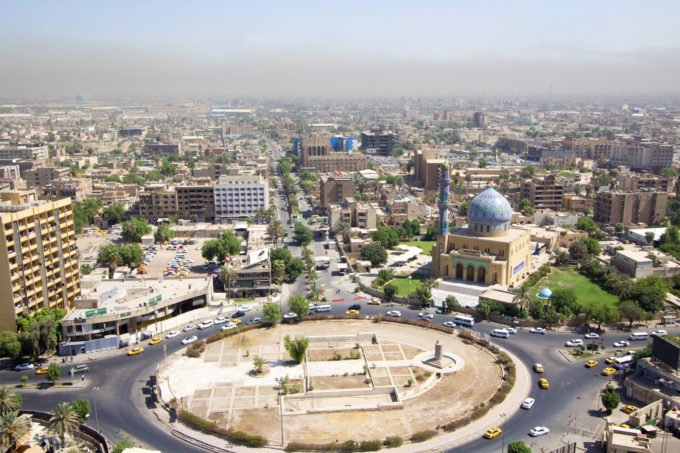
Crimes Against Speyside Whisky in Baghdad

Crimes Against Speyside Whisky in Baghdad
Glenfiddich in Iraq
The Summerland Bar and Restaurant in Baghdad was a place where you ate first and asked questions later, if at all. Tucked away in a fortified hotel compound, it was one of the few to stay open as post-war Baghdad fell prey to car bombs and death squads, giving it the illicit feel of a Prohibition-era speakeasy.
Just as phones and guns had to be checked in at the door, it also helped to leave behind any expectations of a normal dining experience. Never mind the shadowy folks discussing arms deals at the table in the corner. Never mind whether the Steak Diane might actually be horse meat rather than beef. And never mind why Qaiss, the wine waiter, always made you taste the wine first, even though there was often only one vintage on offer anyway, a questionable red called Mr Le Bonjour. If you didn’t like it, you were free to drink somewhere else. Like Turkey. Or Lebanon.
Besides, on the night my story takes place, I’d brought some special booze of my own. It was for a reunion drink with Staff Colonel Mohammed, my old translator and driver. A former commander in one of Saddam Hussein’s tank brigades, he’d deserted during the U.S.-led invasion, and ended up driving his battered 1981 Nissan as a taxi. I’d flagged him down one day, heard his fluent English, and hired him on the spot.
He’d spent the next few months as my guide to Iraq, sharing with me his passion for such subjects as Dolly Parton, the Soviet-made T-72 tank, and Lebanese-made Clan Vintage, the whisky world’s answer to Mr Le Bonjour.
With that in mind, I’d decided to treat him that night to some proper Scotch. Not your usual blended stuff like Johnnie Walker, the favourite across the Middle East, but a Glenfiddich gift pack of three different single malts aged 12, 15, and 18 years. The best there was, I told him, a treat from my native Scotland. He opened one of them, sniffing it like a connoisseur. Then, to my horror, he poured the entire contents into the glass of lager he was already drinking.
I watched, aghast, as Speyside’s finest elixir vanished into the gassy froth. I’d seen people ruin good malts with regular mixers like Coke or tonic. But lager?
Apart from anything else, wouldn’t it taste disgusting?
The colonel lit a cigarette and shrugged. The Scots had their traditions, he explained. And the Iraqi army had theirs. In the officers’ mess, he said, they’d always cocktailed Scotch and lager together to “hide the bitter taste”. By which he meant the bitter taste of the whisky, not the lager.
He swirled the malt around in the glass, its delicate hints of dried fruit, candy peel, and oak now overlaid—or rather, overwhelmed—with notes of cheap Turkish beer. My protestations that he was supposed to enjoy the taste of the malt, not massacre it, went unheeded. Then, as he poured another, the same morbid curiosity that had brought me to Iraq in the first place got the better of me.
“Go on then,” I said. “Let me try one too.”
I’d like to tell you I was pleasantly surprised. But this was Iraq, where stories tend not to have happy endings. The only thing worse than the poisonous, petrol-like taste was the hangover the next day.
Yes, of course I had several.
Up Next
A Whisky Cathedral in the Japanese Alps
A Hammam to Forget the War
The hot pools of Hammam Al-Alil in northern Iraq are a steamy, sulfurous world away from the war on their doorstep, and bathers like it that way.
Chasing Orwell’s Ghost
Did the Haunting Landscape of Scotland’s Isle of Jura Inspire the Despair of Nineteen Eighty-Four?
A Circus School Near the Syrian Border
In southeastern Turkey, young Syrian refugees are juggling, trapezing and stilt-walking toward self-confidence.
A Lens to the Front
A homegrown Iraqi photo agency is telling stories no one else can.






